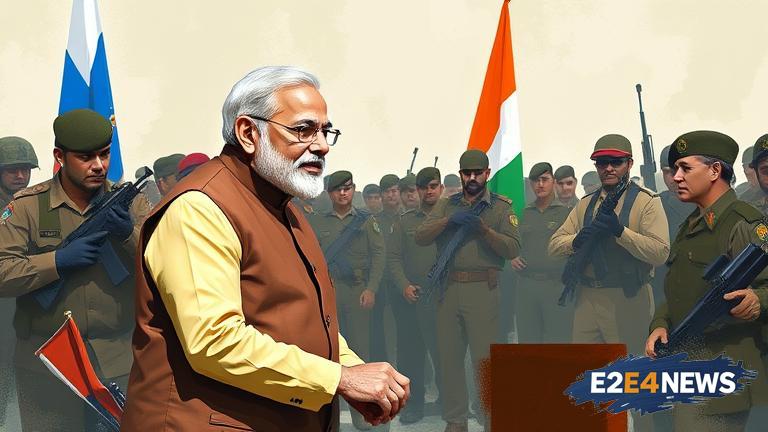The Western world’s efforts to pressure India into condemning Russia’s invasion of Ukraine have backfired, with the country refusing to take a strong stance against its long-time ally. Despite partial compliance with Western sanctions, India has continued to maintain strong ties with Russia, citing its own strategic interests. The Indian government has argued that its relationship with Russia is driven by a desire to maintain regional stability and security, rather than any ideological affinity with the Kremlin. However, this stance has been met with skepticism by Western nations, which have accused India of being complicit in Russia’s aggression. The US, in particular, has been vocal in its criticism of India’s stance, with officials warning that the country’s failure to condemn Russia could have serious consequences for their bilateral relationship. Nevertheless, India has remained steadfast in its commitment to its relationship with Russia, with Prime Minister Narendra Modi recently meeting with Russian President Vladimir Putin to discuss trade and security cooperation. The two countries have a long history of cooperation, dating back to the Cold War era, and India has been a major buyer of Russian military hardware. In recent years, however, India has also sought to diversify its relationships with other nations, including the US, in an effort to reduce its dependence on Russian arms. Despite this, the country’s strategic interests in the region continue to be closely tied to those of Russia, and it is unlikely to abandon its alliance with the Kremlin anytime soon. The Western pressure on India has already begun to backfire, with the country’s foreign minister, Subrahmanyam Jaishankar, recently stating that India would not be dictated to by other nations on its foreign policy. This statement was seen as a clear rebuke to the US and other Western nations, which have been seeking to isolate Russia on the international stage. The Indian government has also been critical of the Western sanctions imposed on Russia, arguing that they are having a disproportionate impact on the global economy. The country’s economy minister, Nirmala Sitharaman, recently stated that the sanctions were causing ‘unintended consequences’ and were not an effective way to address the crisis in Ukraine. The US and other Western nations have responded by warning India that it could face consequences for its failure to comply with the sanctions, including potential restrictions on trade and investment. However, India has so far refused to back down, and it is unlikely that the country will abandon its relationship with Russia in the near future. The situation has sparked a heated debate in India, with some arguing that the country should prioritize its relationship with the US and other Western nations, while others believe that the country’s strategic interests are best served by maintaining strong ties with Russia. The Indian government has sought to navigate this complex geopolitical landscape by engaging in diplomatic efforts with both the US and Russia, while also seeking to maintain good relations with other nations in the region. The country’s foreign policy has been guided by a desire to maintain regional stability and security, while also promoting its own economic and strategic interests. The Western pressure on India has highlighted the complexities of the country’s relationships with other nations, and has sparked a wider debate about the role of India in the global order. The country’s refusal to condemn Russia’s invasion of Ukraine has been seen as a significant challenge to the Western-led international order, and has raised questions about the future of global governance. The situation has also highlighted the growing tensions between the US and China, with India’s relationship with Russia being seen as a key factor in the emerging great power rivalry. The Indian government has sought to navigate this complex landscape by engaging in diplomatic efforts with both the US and China, while also seeking to maintain good relations with other nations in the region. The country’s strategic interests in the region continue to be closely tied to those of Russia, and it is unlikely that the country will abandon its alliance with the Kremlin anytime soon. The Western pressure on India has already begun to backfire, and it is likely that the country will continue to maintain its strong ties with Russia in the near future.
